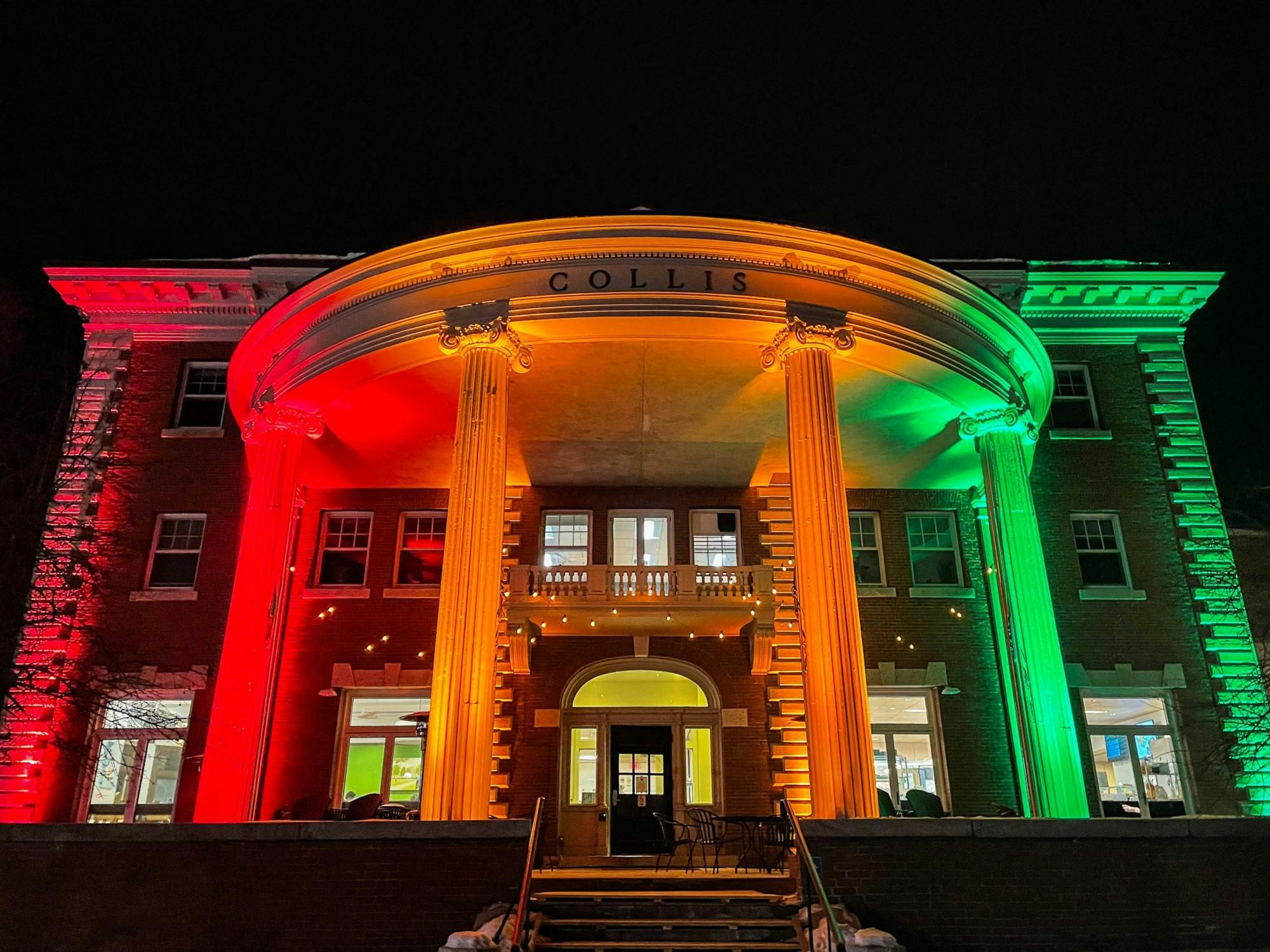Since February 2016, Dartmouth has celebrated Black heritage and African diasporic culture with Black Legacy Month. Black Legacy Month’s theme this year is “Melanin Mosaic,” and programming materials will feature a logo designed by Tiana Davis ’25 and Cameron Maddox ’24. Programming has been organized by a committee consisting of 30 students, the Office of Pluralism and Leadership, the Special Programming and Events Committee, the Tuck School of Business, the Dartmouth African Student Association and other organizations.
This year’s Black Legacy Month planning committee was split into two subcommittees — event planning and marketing, according to marketing branch chair Rawan Hashim ’26. Hashim said that her experience working with the committee has taught her more about the College’s resources.
“I will always think of Black Legacy Month as the way that I was first introduced to the programming on campus and the way that I was able to access all the resources we have on campus,” Hashim said.
Oumiekhari Fatty-hydara ’27 noted that, unlike other colleges that refer to February as Black History Month, Dartmouth calls this month Black Legacy Month. Fatty-hydara said she prefers the term “legacy” because it shows that Black people have an “enduring legacy” that is “constantly evolving.”
Hashim also said that calling this month Black Legacy Month rather than history is “special” because it celebrates “the past, present and future.”
“It means a lot, being able to give back to our history,” Q Jones ’25 said. “I think honoring prominent Black leaders and celebrating our Blackness on this campus is very important.”
The College launched this year’s celebration with an opening ceremony on Feb. 1 at Collis Common Ground. Fatty-hydara, an attendee of the opening ceremony, said that Mahi Tessema ’27 and Ajayda Griffith ’27 performed spoken poetry. Fatty-hydara also said there was a live dance performance by Soyeya, a student-led, African dance troupe.
“I put a lot of effort in planning [the opening ceremony] because I knew it was going to be one of our biggest events, where we had well over 150 to 200 people who came by,” Jones, who chaired the event planning committee, said.
Fatty-hydara said the opening ceremony was “amazing” and a “beautiful” display of Black culture.
Across campus, student organizations and house communities have been collaborating to sponsor Black Legacy Month events. On Feb. 2, West House and the Shabazz Living Learning Community co-hosted a dinner with Ethiopian-American jazz vocalist and songwriter Meklit Hadero. The Men of Color Alliance and National Society of Black Engineers co-sponsored a Super Bowl watch party on Feb. 11.
Devontae Lacasse ’24 attended the Super Bowl watch party and said it has been his favorite event so far.
“I saw a lot of people enjoying the game and coming together as a community,” Lacasse said.
Fatty-hydara said she is looking forward to the Black Love Gala, which takes place on Feb. 16 at Collis Common Ground.
“I’ve heard lots of great things [about the gala],” Fatty-hydara said. “I heard that it’s kind of like the crown jewel of Black Legacy Month here at Dartmouth, so I’m excited to go with my friends.”
Lacasse said he is highly anticipating Black Legacy Months’ Got Talent on Feb. 15 at Sarner Underground. According to Lacasse, the talent show will highlight Black artists on campus. Lacasse said he plays three different saxophones for five different ensembles and is interested in Black art.
“A lot of the time I spend with the arts and music has been a way for me to express myself and find joy,” Lacasse said.
In addition to opportunities for introspection, students said that Black Legacy Month offers a chance to share elements of their community with those outside of it.
For Fatty-hydara, Black Legacy Month is “a time where people that are not Black could look more into the trials and tribulations of being Black,” and serves as “an opportunity … to highlight how we are trying to shape our own narratives.”
In addition, Fatty-hydara said that Diversity, Equity and Inclusion (DEI) initiatives at Dartmouth allow students from different races, cultures and backgrounds to engage with the Black community and have conversations about what it means to be Black.
“Black Legacy Month is recognizing the impact that Black people have had not only in America but also across the world,” Lacosse said. “[This month] solidifies and ensures that people have an awareness of the African diaspora generally.”
Jones echoed a similar sentiment, noting that this month brings together communities at the College.
“Being able to celebrate our victories and build that camaraderie, Black Legacy Month brings this community together and gives people something to be a part of that is bigger than themselves,” Jones said.




